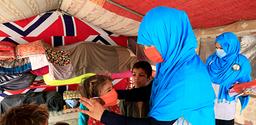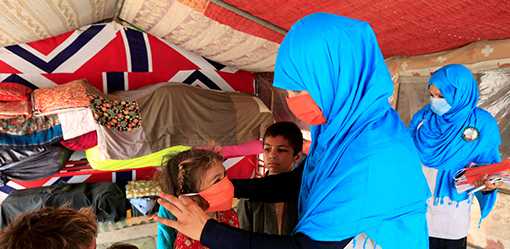

(Reuters) - The U.N. children's agency said it was holding discussions with Afghanistan's ruling Taliban authorities over "timelines and practicalities" for a possible required handover to local organisations of its education programmes and that classes would continue in the meantime.
Aid officials say that the Taliban had signalled international organisations could no longer be involved in education projects, in a move criticised by the U.N. but not yet confirmed by Afghan authorities.
UNICEF said it had received assurances from the education ministry that its community-based classes, which educate 500,000 students, would continue while they discussed the matter.
"As the lead agency for the education cluster in Afghanistan, UNICEF is engaged in constructive discussions with the de facto Ministry of Education and appreciates the commitment from the de facto minister to keep all ... classes continuing while discussions take place about timelines and practicalities," UNICEF's Afghanistan spokesperson, Samantha Mort, told Reuters.
"In order to minimise disruption to children's learning, it is imperative that any handover to national NGOs is done strategically and includes comprehensive assessment and capacity building."
A spokesperson for the Taliban did not respond to request for comment. The Ministry of Education has not publicly confirmed the policy.
The Taliban, who took power in 2021, have closed most secondary schools to girls, stopped female students attending universities and stopped many Afghan women working for aid groups and the United Nations in accordance with their strict interpretation of Islamic law.
International organisations have been heavily involved in education projects, and UNICEF made an agreement with the Taliban to run community classes before they took over the country.
Two humanitarian sources told Reuters this month that aid agencies had been told provincial authorities had been directed to stop the involvement of international organisations in education projects, possibly within weeks.
The U.N. spokesperson in New York said the move would be a "horrendous step backwards".
UNICEF runs many community-based classes including for 300,000 girls, often in homes in rural areas.
The Taliban took over Afghanistan after a 20-year insurgency against U.S.-led forces with a speed and ease that took the world by surprise.
(Reporting by Charlotte Greenfield; Editing by Nick Macfie)




